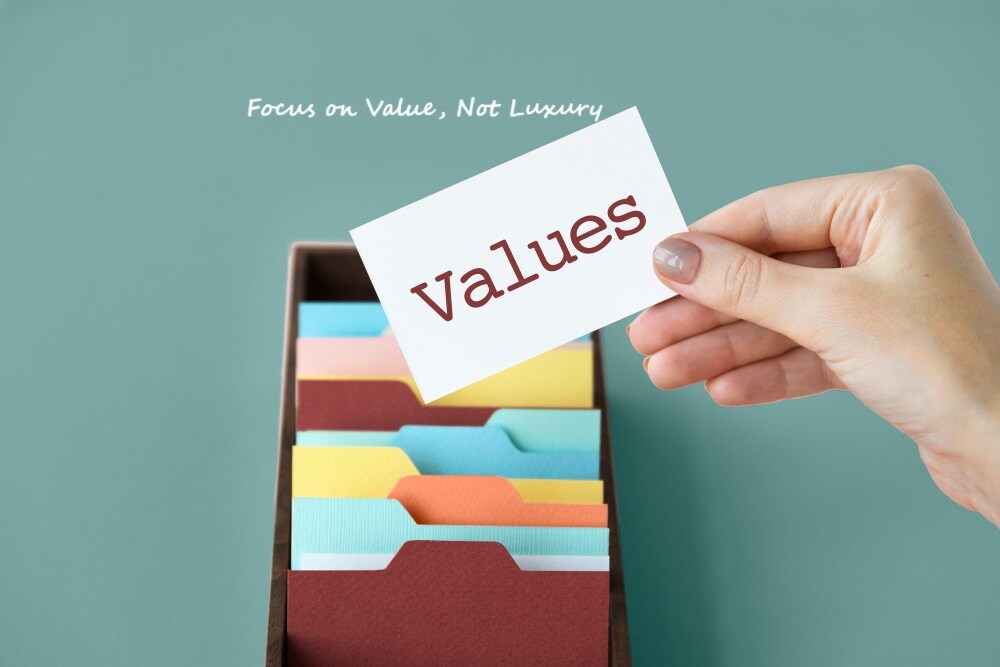We’ve all heard the phrase “live within your means,” but how often do we find ourselves struggling to follow that advice, especially when life seems to be offering more opportunities for indulgence than ever before? The culprit behind many people’s financial struggles is something called lifestyle inflation, a sneaky force that slowly creeps in and makes it harder to save money or reach financial goals.
In this article, we’ll explore The Role of Lifestyle Inflation in Financial Stress—How to Beat It what lifestyle inflation is, how it contributes to financial stress, and—most importantly—how to beat it before it takes control of your finances.
What is Lifestyle Inflation?
Lifestyle inflation refers to the tendency to increase your spending as your income rises. On the surface, this seems natural: as you earn more, you can afford more luxuries. However, the problem arises when you allow every increase in income to be followed by an increase in spending. Instead of saving or investing the extra income, you start upgrading your lifestyle—buying a bigger house, a more expensive car, dining out more often, or purchasing high-end gadgets that you really don’t need.
While enjoying a little indulgence isn’t inherently bad, the key lies in finding a balance. Without control, lifestyle inflation can silently chip away at your financial security, making it harder to achieve long-term goals like buying a home, retiring comfortably, or saving for your child’s education.
How Lifestyle Inflation Causes Financial Stress
Most people’s financial stress doesn’t stem from earning too little—it’s about spending too much. Lifestyle inflation makes it easy to fall into the trap of living paycheck to paycheck, despite earning a decent salary. Here’s how lifestyle inflation causes stress:
- Increased Fixed Expenses: As your income increases, you might feel pressure to upgrade your living situation. You might move to a bigger apartment or buy a more expensive car, resulting in higher monthly expenses. These expenses often become fixed costs that limit your ability to save or invest.
- Reduced Saving Potential: As you increase your spending, you inadvertently reduce the amount you can save. You might allocate more money for unnecessary items or experiences, leaving you with little to no savings or emergency funds. When unexpected expenses arise, you could find yourself in financial trouble.
- Financial Comparison: A higher income often leads to a desire for a more “premium” lifestyle, especially if you see friends or colleagues upgrading their lives. This comparison can pressure you to keep up with others, even if it means overextending your budget. The stress of keeping up with “appearances” can be overwhelming and exhausting.
- Lack of Long-Term Financial Goals: When lifestyle inflation takes hold, short-term desires (like the latest tech gadget or a luxurious vacation) often take precedence over long-term financial goals (such as retirement or buying a home). This focus on instant gratification can prevent you from building real wealth over time.
Read More: How to Live a Luxury Lifestyle on a Budget
How to Recognize Lifestyle Inflation
The first step to combating lifestyle inflation is to recognize it. Here are a few signs that lifestyle inflation might be creeping into your life:
- Constantly upgrading to the latest version of things: If you find yourself buying the newest phone, laptop, or car every time a newer model comes out, lifestyle inflation could be at play.
- Lifestyle creep after a promotion or raise: If you’ve recently received a pay increase and immediately spent it on luxuries, this could be a sign of lifestyle inflation. You should aim to keep your spending consistent, or at least proportionally smaller, in relation to your income increase.
- You’re always “too busy” to save: If you’re so busy living your new, upgraded lifestyle that you have no time to manage or track your finances, it’s easy to fall into financial stress. Saving should be a priority, even if you’re making more money.
- You’re more focused on appearances than savings: When the idea of impressing others becomes a priority over your financial well-being, it’s a red flag. A significant portion of the population falls into this trap—spending more than necessary to “look successful.”
Read More: 15 Ways to Achieve Financial Freedom
Here is the second part of: The Role of Lifestyle Inflation in Financial Stress—How to Beat It

How to Beat Lifestyle Inflation and Reduce Financial Stress
Now that we’ve identified how lifestyle inflation works and how it causes financial stress, let’s explore some practical steps to beat it. The goal is to maintain a lifestyle that aligns with your values and financial goals, without the unnecessary spending that lifestyle inflation encourages.
Create and Stick to a Budget
The first and most effective way to combat lifestyle inflation is to create a budget that aligns with your long-term financial goals. Track your income and expenses to ensure you’re living within your means.
- Use budget tools like Mint, YNAB (You Need A Budget), or EveryDollar to categorize your spending and highlight areas where you can cut back.
- Set limits for discretionary spending, such as dining out, entertainment, or luxury purchases. This will help you keep your lifestyle consistent, even as your income rises.
Read More: How to Live a Luxury Lifestyle on a Budget
Pay Yourself First
When you receive a raise or bonus, it’s easy to feel the urge to immediately spend that extra money. Instead, set up automatic contributions to your savings accounts or investment funds before you touch the extra income.
- A good rule of thumb is to save at least 20% of your income or increase that percentage if possible. This money should go into long-term investments, retirement accounts, or emergency savings, not towards upgrading your lifestyle.
- Pay off debt faster. Extra income should go toward clearing debt that is costing you money in interest, such as credit card debt, student loans, or car loans.

Focus on Value, Not Luxury
Lifestyle inflation often happens when we focus on things that look expensive, not things that truly add value to our lives. The next time you want to make a large purchase, ask yourself if the item will genuinely improve your quality of life, or if it’s just an impulse buy driven by social media or peer pressure.
- Invest in experiences, not just material goods. Traveling, spending time with loved ones, and learning new skills can be more fulfilling than buying the latest luxury car or designer clothes.
- Prioritize long-term investments such as buying real estate, building a retirement fund, or investing in stocks, overspending on things that offer short-term gratification.
Read More: 15 Ways to Achieve Financial Freedom
Avoid Social Comparison and Peer Pressure
It’s easy to get caught up in comparing yourself to others, especially if you have friends or colleagues who seem to be constantly upgrading their lives. However, social comparison is one of the biggest causes of lifestyle inflation.
- Create personal financial goals that reflect your values, not what others are doing. Your financial independence and security are more important than keeping up with someone else’s outward success.
- Be mindful of social media—it’s easy to feel pressured by influencers and advertisements, but remember that most of what you see online is carefully curated, and often, not reflective of real financial stability.
so we are last staps for: The Role of Lifestyle Inflation in Financial Stress—How to Beat It
Read More: How to Live a Luxury Lifestyle on a Budget
Practice Mindful Spending
Before making a purchase, ask yourself if you really need the item or service. Practice mindful spending by reflecting on how your purchase aligns with your life goals and values. Are you upgrading your lifestyle for status or because it brings genuine joy and purpose into your life?
- Wait 24 hours before making any non-essential purchases to give yourself time to think it through.
- Challenge yourself to reduce discretionary spending for a set period—say, three months—and see how much you can save.
Final Thoughts: Beat Lifestyle Inflation and Take Control of Your Financial Future
Lifestyle inflation is a sneaky force that can quietly derail your financial goals if you’re not careful. But with awareness and intentional effort, you can beat it and reduce your financial stress. By budgeting, saving first, focusing on value, and avoiding comparisons, you can maintain control of your finances and work towards a more secure and fulfilling future.
Remember, luxury is not just about spending money—it’s about creating a life that’s rich in experiences, security, and personal satisfaction.
References:

